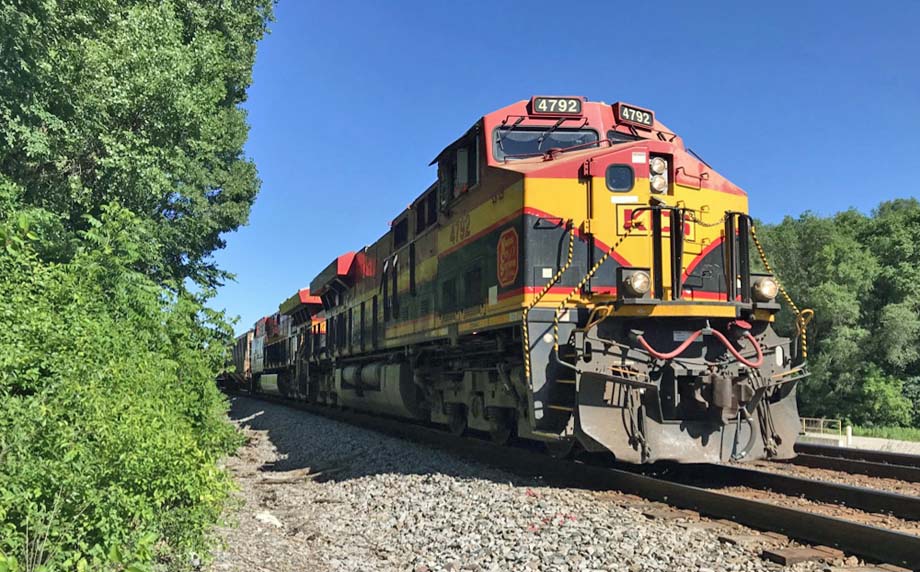
Washington District of Columbia USA - How the mighty have fallen.
A year ago, the battle between CP and CN for ownership of KCS was the top News Wire story of 2021.
This year, the ongoing developments in the CPKC merger didn't even make the News Wire Top 10 list.
It came close, however, finishing 11th in our balloting.
And there was certainly enough going on as the two railroads move toward what could be the last merger of Class I
railroads that it deserves further review, along with the pending BNSF takeover of Montana Rail Link, CSX's completion
of its purchase of Pan Am Railways, and CEO changes at three Class I roads.
CPKC Ask and see what you receive
The regulatory process involved in merging KCS covered most of 2022, with other railroads, lineside communities, and
other interested parties weighing in with regulators, generally to ask for conditions to be imposed if the Surface
Transportation Board does, as expected, approve the deal.
A decision is expected sometime in January.
Spurned KCS suitor CN raised objections to the deal at every turn, claiming the CPKC merger application was based on
fatally flawed data, would hurt competition, and could lead to rail network meltdowns in Chicago, Houston, and
elsewhere.
CN also said it should receive the KCS Springfield Line, connecting that Illinois city to St. Louis and Kansas City, to
create a route to Chicago, Detroit, Toronto, and Montreal to compete with the merged company, CPKC.
Relatively late in the game, it offered a milder alternative of trackage rights.
The other Class I railroads had their own requests for conditions.
BNSF and UP want CPKC to be prevented from increasing traffic in the Houston area until it identifies, funds, and
completes projects to increase capacity, and want guarantees protecting interchange at the important Laredo, Texas,
gateway.
Norfolk Southern and CSX both raised questions about the current KCS-NS Meridian Speedway venture, with NS concerned
the merger might hurt the operation and CSX wanting access to the Speedway route.
Others seeking conditions or raising objections include Chicago commuter operator Metra, which wants a host of
infrastructure improvements and other conditions to avoid service disruptions, and a group of Chicago suburbs who have
sought to block the deal entirely over traffic increases that CP and KCS estimate will go from three to eight freight
trains a day, but the suburban group, the Coalition to Stop CPKC, has estimated could be as many as 14
trains.
Failing a complete halt to the merger, that group originally sought more than US$9 billion to mitigate the impact of
the deal, but eventually scaled that back to US$400 million.
David Lassen.
 Article abridged - non-CPKC related data removed.
Article abridged - non-CPKC related data removed.
(likely no image with original article)
(usually because it's been seen before)
provisions in Section 29 of the Canadian
Copyright Modernization Act.

